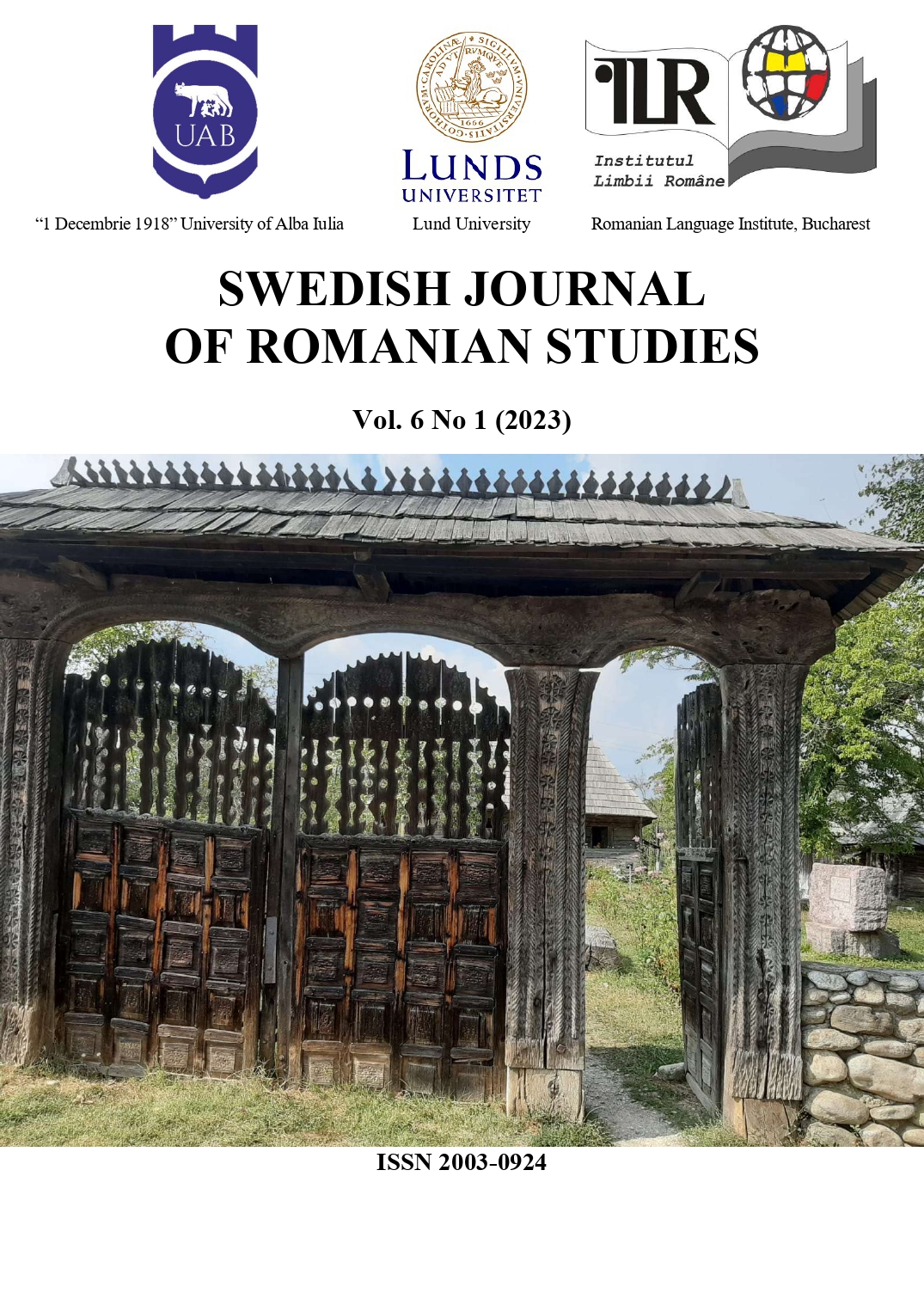Matei Vişniec – del exilio cultural a la cultura del exilio
Matei Vişniec – from the cultural exile to the culture of exile
DOI:
https://doi.org/10.35824/sjrs.v6i1.24941Keywords:
cultural exile, cultural journalism, self-translation, literary biography, European literature, globalizationAbstract
This study intends to offer a general overview on one of the most far-reaching aspects of an exceptional literary biography: Matei Vişniec’s story (Rădăuţi, Romania, 1956). Our analysis will focus on the transition of an immense literary work, opening with his political exile in the late 80’s and reaching today’s urbane, all-embracing European literature. Matei Vişniec claims the existence of a “joyful exile” as a concept –a cultural one, soothed by many literary references, deep-rooted in his Romanian educational background. After a brief hunt for a host language for his writing in the early 90’s, Vişniec finally chose French, which he defines metaphorically as his mistress-tongue, as opposed to Romanian, his wife-tongue. Each of these languages’ demands determine his pick, depending on the literary genre to address: French –due to its wider circulation and its morphosyntactic concission– was assigned to his narrative work, and to his poetry, Romanian –thanks to its lexical vastness, containing countless synonyms from various origins. We believe it’s interesting to point out self-translation as one of the essential features of a literary biography saddled between two different languages and cultures, which leads Matei Visniec to describe himself as “a man with his roots in Romania and his wings in France” and thus creating the emblematic, allegorical image of a “winged tree”. Translated into more than 25 languages, his work strives for universality and has been recognized for decades, through many valuable prizes, by today's French-speaking culture. From a diachronic perspective, aspiring to establish some of the specific features of a whole creative universe written in a context of exile and migration, this text approaches some significant moments in Matei Vişniec’s literary biography.
References
Lefter, I.B. (2017). Parabolele absurde şi ironice ale lui Vişniec-poetul/ The absurd and ironic parables of Vişniec-the poet. In M Vişniec (2017). Opera poetică. Bucureşti: Cartea Românească. 15-16
Vişniec, M. (2007). Am fost fericit ca un zeu/ I have been as happy as a god. In Agonia 2 (En línea: http://www.poezie.ro/index.php/press/1738056/Am_fost_fericit._Ca_un_zeu)
Vişniec, M. (2020). Matei Vişniec: teatru şi jurnalism (influenţe reciproce)/ Matei Vişniec: theater and journalism (reciprocal influences). In TNB. (En línea: https://www.tnb.ro/ro/matei-visniec-teatru-si-jurnalism-influente-reciproce)
Vişniec, M. (2021). Un secol de ceaţă/ A century of fog, Bucureşti: Polirom.
Downloads
Published
How to Cite
Issue
Section
License
Copyright (c) 2023 Angelica Lambru

This work is licensed under a Creative Commons Attribution-NonCommercial 4.0 International License.
Authors who publish with this journal agree to the following terms:
a. Authors retain copyright and grant the journal right of first publication with the work simultaneously licensed under a Creative Commons Attribution-NonCommercial 4.0 International License that allows others to share the work with an acknowledgement of the work's authorship and initial publication in this journal.
b. Authors are able to enter into separate, additional contractual arrangements for the non-exclusive distribution of the journal's published version of the work (e.g., post it to an institutional repository or publish it in a book), with an acknowledgement of its initial publication in this journal.
c. Authors are permitted and encouraged to post their work online (e.g., in institutional repositories or on their website) prior to and during the submission process, as it can lead to productive exchanges, as well as earlier and greater citation of published work (See The Effect of Open Access).

